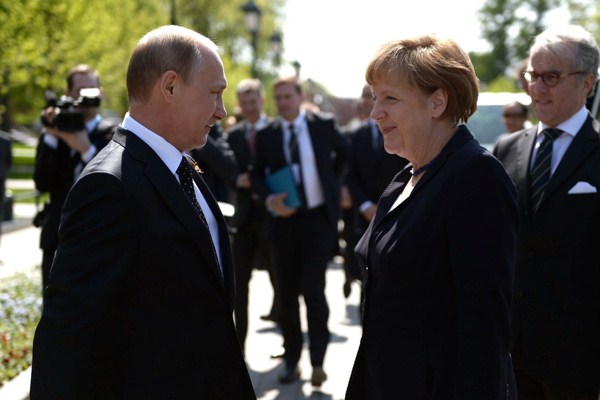Vladimir Putin has a busy social schedule these days. The Russian president looked a little isolated on May 9, when world leaders largely stayed away from the immense military parade he organized in Moscow to commemorate the end of World War II. But Chinese President Xi Jinping was among the few who did attend, and German Chancellor Angela Merkel went to Moscow for talks one day after the celebrations. Putin has had little time to recover from his big party. Last week, U.S. Secretary of State John Kerry visited him in Sochi to talk about Ukraine and Syria.
Washington followed up on the Sochi meeting by sending Victoria Nuland, the assistant secretary of state for European and Eurasian affairs, to Moscow to continue further high-level discussion on Ukraine. Putin may not be globally popular, but he is no pariah.
Throughout the Ukrainian crisis, Western hawks have called for Putin to be isolated, but he has never been entirely cut off. The Western members of the G-8 blackballed Putin last year and held a special G-7 summit in Brussels in June without him. Yet the Russian president was invited to attend events marking the anniversary of the D-Day landings in Normandy afterward, talking with Merkel and other leaders about Ukraine in the margins of the ceremonies. Australia briefly considered barring him from last year’s G-20 summit in Brisbane, but the non-Western members of the club rejected the idea. Brazil welcomed Putin to the annual BRICS summit last summer, and Putin has held cordial bilateral meetings with both Xi and Indian Prime Minister Narendra Modi, compensating for his chilly relations with the West.

